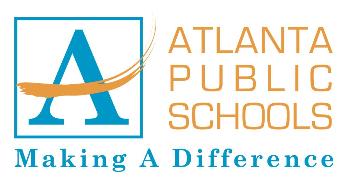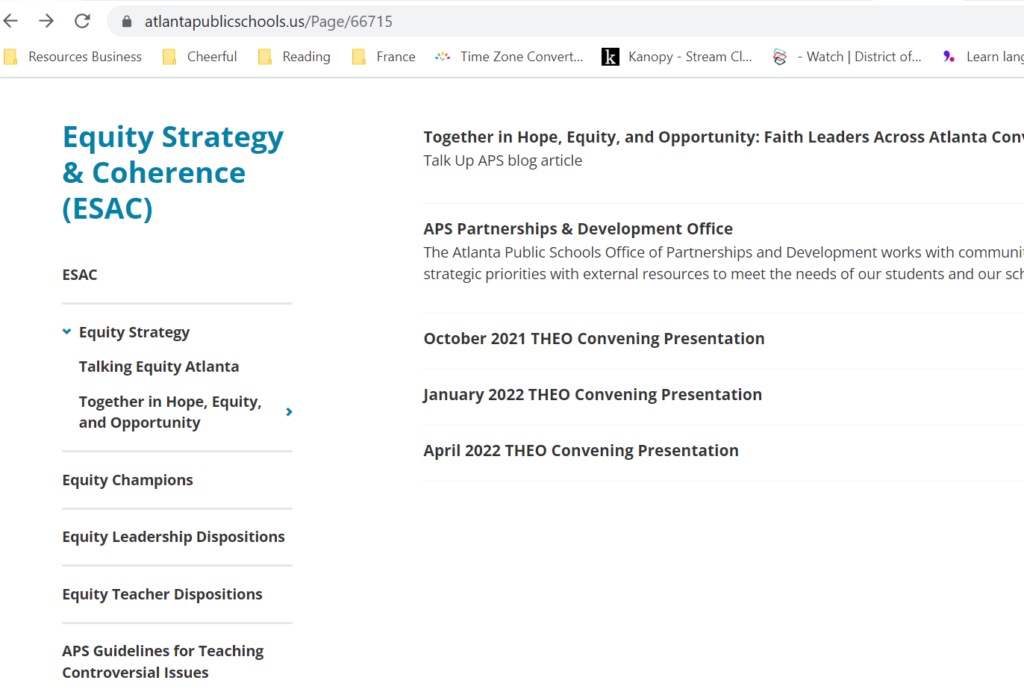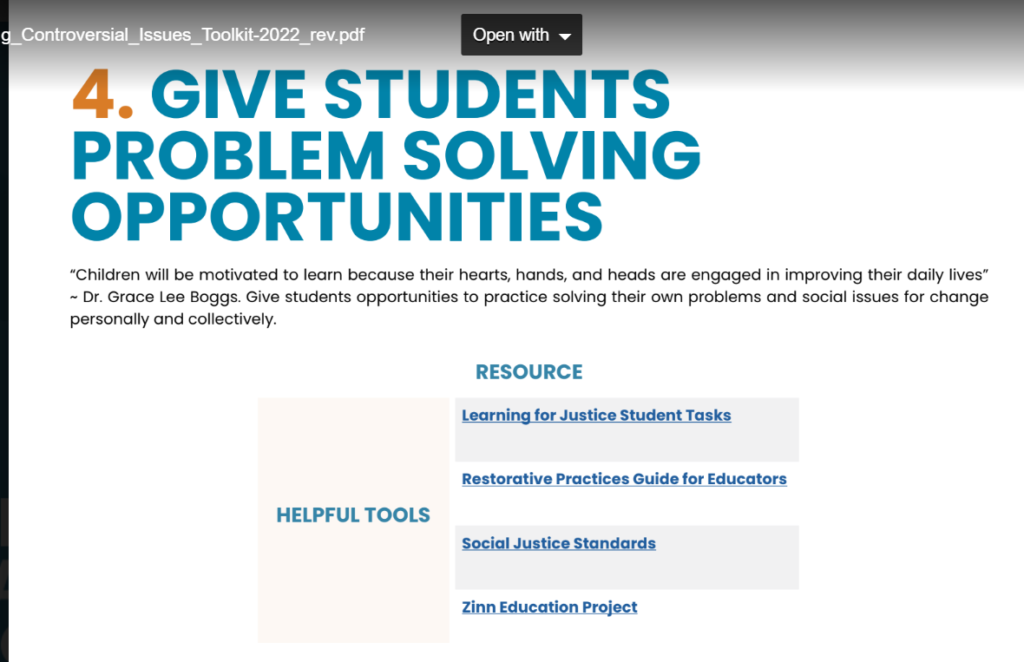
Atlanta Public Schools Center for Equity and Social Justice Features Zinn Education Project in Its Guidelines for Teaching Controversial Issues
Incidents
The Atlanta Public Schools Center for Equity and Social Justice has a teacher resource called Guidelines for Teaching Controversial Issues.

The document begins with a letter from Dr. Tauheedah Baker-Jones, Chief Equity and Social Justice Officer for Atlanta Public Schools. In her letter, she states,
Therefore, if we want to create a more perfect union, we must start in our classrooms, and we must teach to change the world. This toolkit has been designed to support you in doing just that. It contains information, guidance, and resources to assist leaders and teachers in taking on the responsibilities.
The 16 paged document contains “Talking Points” and “Expectations,” all of which are in the full document here.
Notably, the document refers teachers to Resources, one of which is the Zinn Education Project, named after infamous historian Howard Zinn. The Zinn Education Project “promotes and supports the teaching of people’s history in classrooms across the country.” The mission references Zinn’s book “A Peoples History of the United States,” which posits itself as alternative view of American history and features the quote, “There is not a country in world history in which racism has been so important, for so long a time, as the United States.” Of note, Zinn’s book informed much of Iowa-native Nikole Hannah-Jones’s 1619 Project.

Two non-profit organizations coordinate the Zinn Education Project, Rethinking Schools and Teaching for Change, that, according to the website, “have spent decades developing and providing social justice resources for teachers.”
The Zinn Education Project features campaigns including “Teach Climate Justice” and “Abolish Columbus Day.”
The recommended resources at the end of Guidelines For Teaching Controversial Issues include Stamped from the Beginning by Ibram X Kendi and Learning for Justice’s “Social Justice Standards: The Teaching Tolerance Anti-Bias Framework.”
According to Patch.com, Georgia math and reading scores for fourth and eighth-graders have decreased since 2019.
